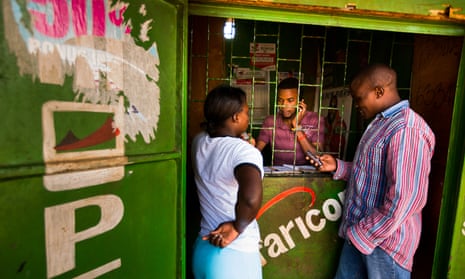In July President Barack Obama addressed the national convention of the Democratic Party and ended perhaps the last great speech of his tenure by returning to the theme of “the audacity of hope”.
Stark dividing lines have been drawn in the US election contest between hope and fear, between a yearning for simpler times and a belief that the best is yet to come. It is not hard to draw a parallel with some of Britain’s own political challenges; the tension between those excited by a more global and connected future and those who fear being left behind in this brave new world.
Much has been written about how to make globalisation work for all, and a solution remains elusive. A challenge we can meaningfully wrestle with as an industry is how we make an increasingly connected society work for the many, making technology a source of hope, not a source of anxiety and exclusion.
The internet has arguably been one of the most powerful forces for democratisation the world has ever known, giving a voice and opening a market to many who were previously disenfranchised. Platforms from TXTBKS, which provides old sim cards into condensed text books for underprivileged schoolchildren to crisis-mapping software Ushahidi show the potential of the simplest technologies to make major differences. Yet within our own society we have been slow to make innovation relevant and accessible to those most apprehensive about or underserved by new technologies, to tackle real, everyday problems such as access to credit, access to a GP within an overloaded NHS, or access to meaningful roles within a fast-changing labour market.
The fintech industry for example can often seem preoccupied with wooing millennials with slick data visualisations and effortless mobile transactions. Yet 1.5 million adults in the UK do not have access to a bank account – while 1.8 million a year access payday loans in the absence of more affordable credit. With high street branches closing at ever faster rates, the digital banking revolution can exclude those most in need of assistance.
Yet the technology exists to make access to banking services and credit possible without access to a traditional bank account. Services such as Kenya’s MPesa enable any user with access to a mobile phone to deposit and transfer funds, no bank account required. Meanwhile almost half of finance executives surveyed believe blockchain technology will mean “the end of banking as we know it”, creating entirely new models for the transfer of funds.
How then can we apply these technologies to providing accessible and affordable credit to those in immediate need, or to ensuring urgent benefit payments are as swiftly available as possible?
In the realm of healthcare, private enterprises in the US are applying the Uber model to medicine via apps such as Heal and Pager which identify the nearest doctor, their ratings and reputation and their price for a real-time consultation. Could we apply the same principle to clusters of local surgeries within the NHS, enabling patients to identify the nearest available appointment to them, dynamically updated to take account of changes and cancellations?
Once hailed as an empowering force for change, the gig economy has come under fire in recent months over working conditions and the status of workers. Perhaps a more equitable and interesting approach is to ask how traditional infrastructure and traditional roles can be re-purposed – meeting the needs of the on-demand economy in a different way. Pass my Parcel, a venture from distribution firm Smiths News, works with independent local stores to facilitate same day delivery on behalf of Amazon. Retailers receive a small fee for each parcel collected, and increased footfall in store while Amazon receive an increased footprint for same-day delivery services. New technology leveraging traditional infrastructure.
In a similar vein, The School in the Cloud takes advantage of dormant skills in retirees to facilitate remote learning among some of the world’s most underprivileged children, tapping into a resource that might otherwise be unused and undervalued. Yet there is no reason a similar principle cannot be applied more broadly. Imagine the impact on an over-burdened education system of thousands of retired teachers, craftspeople, scientists or writers signing up to provide even an hour or two of virtual tuition a week.
In a nutshell, imagine a world where we stop designing products and services with young, urban and affluent populations at the forefront of our minds. They won’t mind – they’ve got Pokemon to catch. The opportunity is to design services that are simple, scalable and solve real problems; so how do we make it a reality?
The team behind Gov.uk have done an extraordinary job in making it simpler to access government information and services. Is the next phase of that journey to move beyond making existing services accessible and towards developing new service propositions? Or can the private sector lead the way, re-engineering the on-demand economy to be not just egalitarian but genuinely fair for both workers and consumers?
Either way, there is a genuine opportunity for the tech community to prove that it is not a “liberal elite” designing for fellow liberal elites but a community committed to making technology a force for hope, not just a force for change. As the founding father of the web once put itas he live-tweeted during the London 2012 Olympics, “This is for everyone”.
This is for everyone #london2012 #oneweb #openingceremony @webfoundation @w3c
— Tim Berners-Lee (@timberners_lee) July 27, 2012
Patricia McDonald is chief strategy officer at Isobar
To get weekly news analysis, job alerts and event notifications direct to your inbox, sign up free for Media & Tech Network membership.
All Guardian Media & Tech Network content is editorially independent except for pieces labelled “Paid for by” – find out more here.
